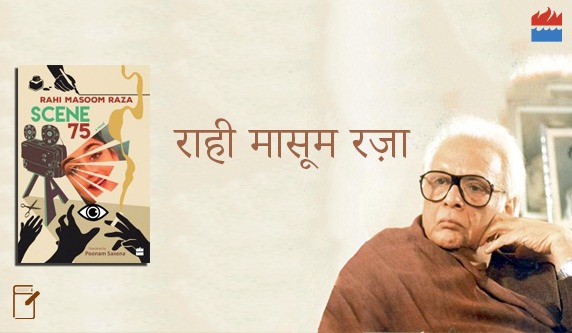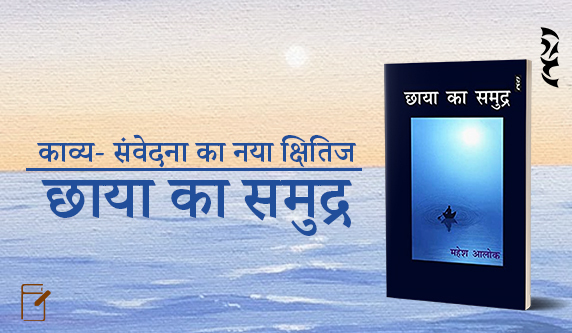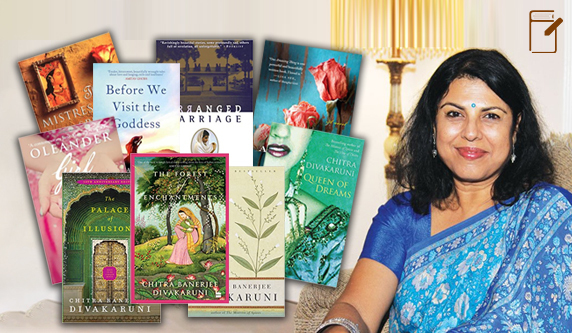Raza was a novelist and poet who worked on films like Lamhe, Karz, Mili, Gol Maal and also penned the epic Mahabharat for television. Scene 75 is his not so humble tribute to the world he came to inhabit
There are two types of people in this world. The ones who know Rahi Masoom Raza and the others who don’t. Scene 75 is one such book in the oeuvre of Raza that holds the distinction of being unknown by both sets of people.
“A no-holds-barred expose of the Hindi film industry’s sordid underbelly,” says the official English translation of the book about Scene Pach-hattar.
Now before we start scrutinizing this description by the translator, Poonam Saxena let us first check out a truly wonderful literary device with which the book opens, the Will and Testament by Rahi Masoom Raza:
My art is dead, my friends
My skin has turned blue, my friends
Take me to the Ganga in Ghazipur, let me sleep in her lap.
But it could be that I die far from my homeland
So this is my will
If a little river flows in that foreign city
Take me there
Let me sleep in her lap
And tell her
That this son of the Ganga is now hers.
I am the son of three mothers: Nafisa Begum, Aligarh University, and the Ganga. I gift Scene: 75 to them. Nafisa Begum is dead. I can’t remember her very clearly. But the other two mothers are alive and I remember them well.
Rahi Masoom Raza
Scene 75, a Shadow Play
Just like the longing to hark back to one’s homeland one last wish, Rahi Masoom Raza writes this darkly comical, cynical account of the people who lurk around the periphery of everything in the city of Bombay.
Ali Amjad, the protagonist, loosely based on Raza himself comes from Benaras to Bombay to become a scriptwriter. But what he experiences is beyond tragic. His poetic observations raise everything to the degree of absurdity. The simple act of finding and living in a society becomes a chore of great importance. But Amjad like others, struggles through it, only to find himself at the end unable to complete his script’s 75.
The novel is set in the shifty 70s. And like all the characters who colored and occupied the imagination of the generation, this book, thought dark comedy, is a feast of colorful stories.
Revelations Galore
The book is loosely and in all probability more accurately based on the characters that represented or at best hoped to represent Hindi Cinema of the 70s.
Manipulative producers, incompetent directors, sleazy heroines, cynical poets turned into songwriters, the book goes on to shed a light on the inhabitants of the dark underbelly of Bombay’s film industry.
Now, Rahi Masoom Raza has never been the one to mince his words when it came to communal harmony or rather disharmony in India. But his near-unempathetic portrayal of the Hindu-Muslim divide in the working class comes the closest to reality. And yes, it bites.
A Word on Translation
Poonam Saxena is the national weekend editor of the Hindustan Times. Before that, she launched and edited the newspaper’s Sunday magazine, Brunch, for twelve years.
Now, the book is not easy to read. But it is not down to Saxena’s translation. It is the distaste with which Raza treats the subject that makes the book insightful yet difficult. Raza didn’t like the industry, that much is pretty clear from the book. But did he despise it? The book leaves you to answer that question yourself.
Having said that, Poonam Saxena clearly takes on a mammoth task in agreeing to translate this book. The book is not popular, but Rahi Masoom Raza is. And any work related to him or around him invites heavy scrutiny.
One could say that Poonam’s literary credentials can not be judged upon this book, but her temperamental credentials can certainly be. She has done a great job!
Scene 75 is available here.





No Comments